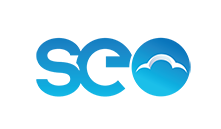

Founder & Director
As a finalist in the Australian Design Award and in various publications my SEO consultancy company has provided competitive prices with measured results. I personally work one on one with my clients to optimise results giving key ingredients to help get your website to the top of Google. My brand experience includes Monash university, Silvertop Taxi, Mercedes Benz and True Value Solar which I was the digital marketing manager. I am accessible, reliable and genuinely care for your business, if your business needs a kickstart with some nice graphic design, web design or SEO, get in touch today.
The Top On-Page Optimization Techniques for SEO
Search engine optimization (SEO) is a constantly evolving field, and on-page optimization plays a critical role in helping websites rank well in search engine results pages (SERPs). On-page optimization involves optimizing individual web pages in order to rank higher and earn more relevant traffic in search engines. In this article, we will discuss the top on-page optimization techniques for SEO that can help your website climb up the SERPs.


1. Conduct Keyword Research and Optimize Your Content
Keyword research is the foundation of any successful SEO campaign. It involves identifying the most relevant keywords and phrases for your website, and incorporating them into your content in a natural and meaningful way. When conducting keyword research, it’s important to consider the search volume and competition of each keyword, as well as the intent behind the search. Once you’ve identified your target keywords, make sure to include them in your meta tags, headers, and throughout your content.
2. Optimize Your Titles and Meta Descriptions
Your website’s title tags and meta descriptions play a crucial role in determining your website’s relevance and click-through rate in search engine results pages. Title tags should be concise and include your target keywords, while meta descriptions should accurately describe the content of the page and include a call-to-action to entice users to click through to your website.
3. Use Header Tags to Structure Your Content
Header tags (H1, H2, H3, etc.) help search engines understand the structure and hierarchy of your content. By using header tags to break up your content into smaller sections, you make it easier for both search engines and users to understand your content. Make sure to use your target keywords in your headers to further optimize your content.
4. Optimize Your Images
Images can be a valuable asset to your website, but they can also slow down your page load times if they’re not optimized correctly. Make sure to compress your images and use descriptive filenames and alt text to help search engines understand what the image is about.
5. Improve Your Website’s Loading Speed
Website speed is a critical factor in both user experience and search engine rankings. Slow-loading websites can lead to high bounce rates and decreased engagement, both of which can negatively impact your search engine rankings. There are many ways to improve your website’s loading speed, including optimizing your images, reducing the number of HTTP requests, and minifying your CSS and JavaScript files.


6. Make Your Website Mobile-Friendly
With the majority of internet traffic coming from mobile devices, it’s more important than ever to ensure that your website is mobile-friendly. A mobile-friendly website is not only essential for user experience, but it can also impact your search engine rankings. Google has stated that mobile-friendliness is a ranking factor, so make sure your website is responsive and optimized for mobile devices.
7. Use Internal and External Links
Internal and external links can both play a role in improving your website’s search engine rankings. Internal links help to establish a site hierarchy and spread link equity throughout your website, while external links can indicate to search engines that your website is a credible source of information. When linking to other pages or websites, make sure to use descriptive anchor text that accurately reflects the content of the linked page.





